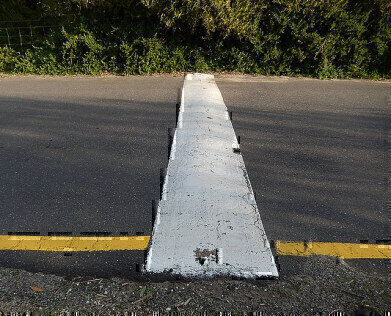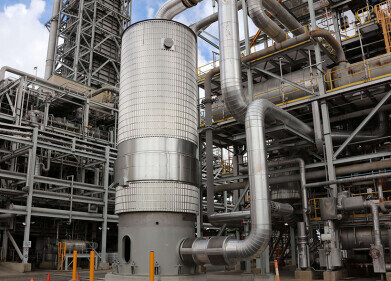Air Clean Up
Traffic Pollution - Are Speed Bumps Really to Blame?
May 28 2017
The government may look to tackle air pollution in Britain’s towns via the unorthodox method of removing speed bumps and other traffic-slowing measures, sources suggest. The idea comes as a result of research which shows that constant acceleration and deceleration can cause significantly higher emissions than in those vehicles which maintain a steady speed.
Though environmental groups have been lobbying the Conservatives to take a tougher stance on diesel engines, the incumbent government is conscious of the fact that the proliferation of diesel cars on UK roads is largely down to an endorsement of diesel by their Labour predecessors. As a result, they do not want to short-change an electorate for a previous regime’s mistakes.
Speed bumps an unlikely culprit
As far back as 2013, research indicated that almost half of all urban air pollution does not come directly from exhaust fumes, with sources such as brake usage and road surface wear also highlighted as contributing factors.
More recently, studies conducted by Imperial College London have found that NO2 emissions from diesel cars were 98% higher when driving over a speed bump than a speed cushion. This is because bumps take up the entire width of the street, forcing a car to slow down more comprehensively than cushions, which are placed at intervals across the roadway and are not as steep, thus requiring less deceleration.
With this in mind, the government has posited the idea of phasing speed bumps out of Britain’s roads entirely, as well as staggering traffic lights more strategically to ensure drivers will avoid red signals if they drive at the speed limit.
Action needed urgently
Despite these latest proposals, the government have been repeatedly criticised by environmentalists for their inaction on improving air quality and reducing transport-related pollution. Many urban areas across the UK regularly fail to meet EU standards for minimum air quality levels, thus incurring hundreds of thousands of pounds’ worth of fines and endangering the lives of the country’s inhabitants.
The Tories have been taken to court on multiple occasions by environmental law firm ClientEarth, most recently earlier this month when the High Court ruled they would not be allowed to delay unveiling new plans to tackle the nation’s ailing airwaves until after the General Election on June 8th. Despite publishing their latest draft proposals earlier this month, sceptics remain unsatisfied.
Scrappage not taxation
One of the main criticisms of the government’s approach is the absence of a specific scrappage scheme for older and more polluting vehicles. The previous Labour government had encouraged the purchase of diesel vehicles through a dedicated subsidy system, but it has since been proved that diesel engines emit four times as much NO2 and 22 times as much PM2.5 as petrol ones.
Nonetheless, industry professionals and environmentalists alike are calling for the government to work towards ridding our streets of diesel cars, with further financial incentives to do so if necessary.
“Government and local authorities need to deal with air quality issues in a sensitive and scientific manner rather than just demonising all diesels,” explained Edmund King, President of the AA. “We are encouraging Government to introduce a targeted scrappage scheme in urban areas to encourage the faster replacement of older buses, trucks, taxis and other gross polluting vehicles.”
Events
IWA World Water Congress & Exhibition
Aug 11 2024 Toronto, Canada
Aug 25 2024 Stockholm, Sweden and online
Sep 03 2024 Mexico City, Mexico
Sep 03 2024 Mexico City, Mexico
Sep 03 2024 San Diego, CA, USA














